Quality of Life as an important research topic
The Quality of Life paradigm encompasses a multidimensional approach to assessing and understanding individuals' well-being and overall satisfaction with life. It goes beyond mere economic indicators and incorporates factors such as physical and mental health, social relationships, environmental conditions, and personal fulfillment. By adopting this holistic perspective, the Quality of Life paradigm strives to capture the diverse aspects of a meaningful and fulfilling life experience.
The scientific foundations that shape the Quality of Life Paradigm require an interdisciplinary approach. That is why our Faculty of Social Sciences in Warsaw and Department of Management continue to provide a platform for exchanging knowledge and ideas related to human well-being. On May 11, SWPS University held a debate titled "Quality of Life the Year After: Achievements and Challenges." This event built upon a scientific conference that took place at SWPS University in Warsaw in September 2021, where experts and scholars gathered to discuss pressing issues related to quality of life.
Quality of Life the Year After: Achievements and Challenges
The debate was introduced by a captivating keynote speech delivered by Karla McKenna, Head of Standards at the Global Legal Entity Identifier Foundation (GLEIF), titled "The Impact of Digital Identity on Sustainability and Quality of Life." Drawing on her extensive experience as an international standards specialist in financial services and her deep understanding of the operational integrity of the Global LEI system, Ms. McKenna offered valuable insights into the vital connection between digital identity, sustainability, and quality of life improvement, and the growing significance of digitalization in all aspects of contemporary society.
The first panel discussion focused on the topic of "Digitalization: Risk or Opportunity for the Quality of Life?" Katarzyna B. Wojtkiewicz, Ph.D., Head of the Department of Management, led the discussion, which included esteemed panelists such as Professor Wolfgang Koenig from the Goethe University Frankfurt, David Campos representing the Global Legal Entity Identifier Foundation (GLEIF), Michał Nowakowski, Ph.D., an expert on legal conditions and AI ethics, and Professor Adam Szpaderski, Head of the Center for Research on the Economics of Memorial Sites, specializing in the application of new technologies in the context of memorial sites.
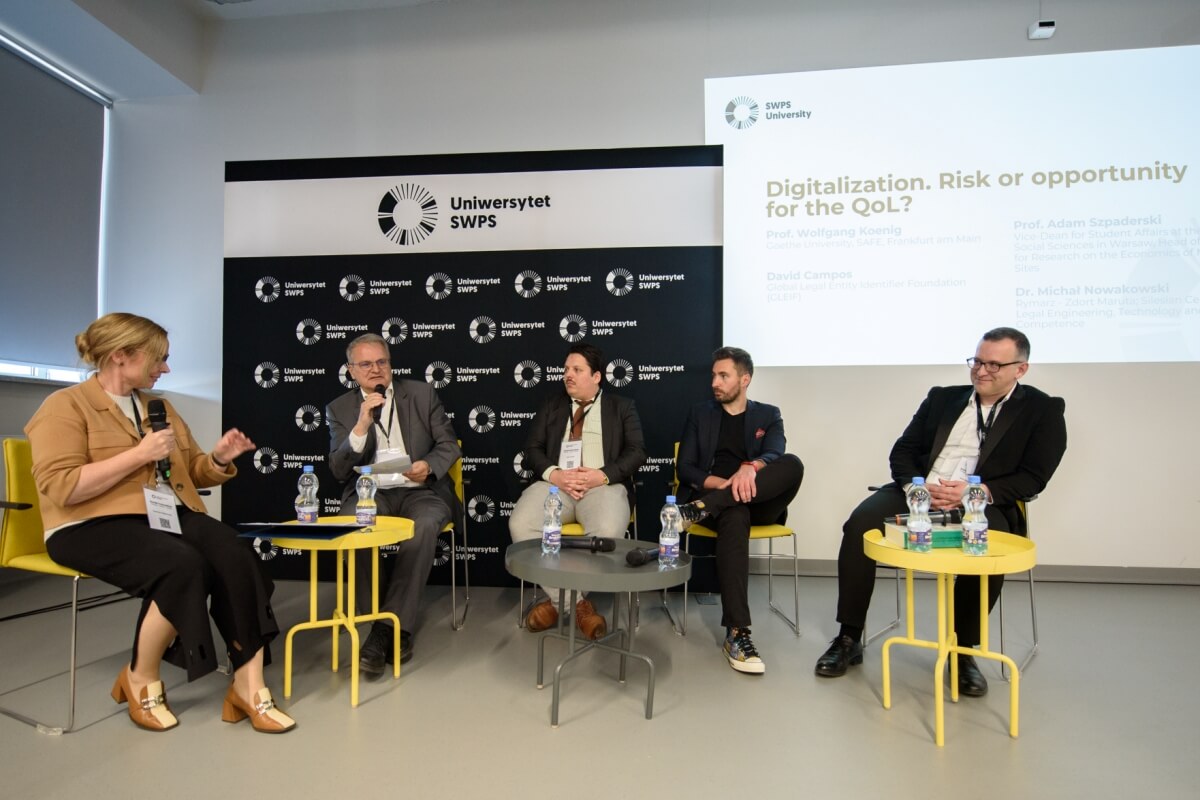 Debate on "Quality of Life the Year After: Achievements and Challenges"; photo: N. Szymański
Debate on "Quality of Life the Year After: Achievements and Challenges"; photo: N. Szymański
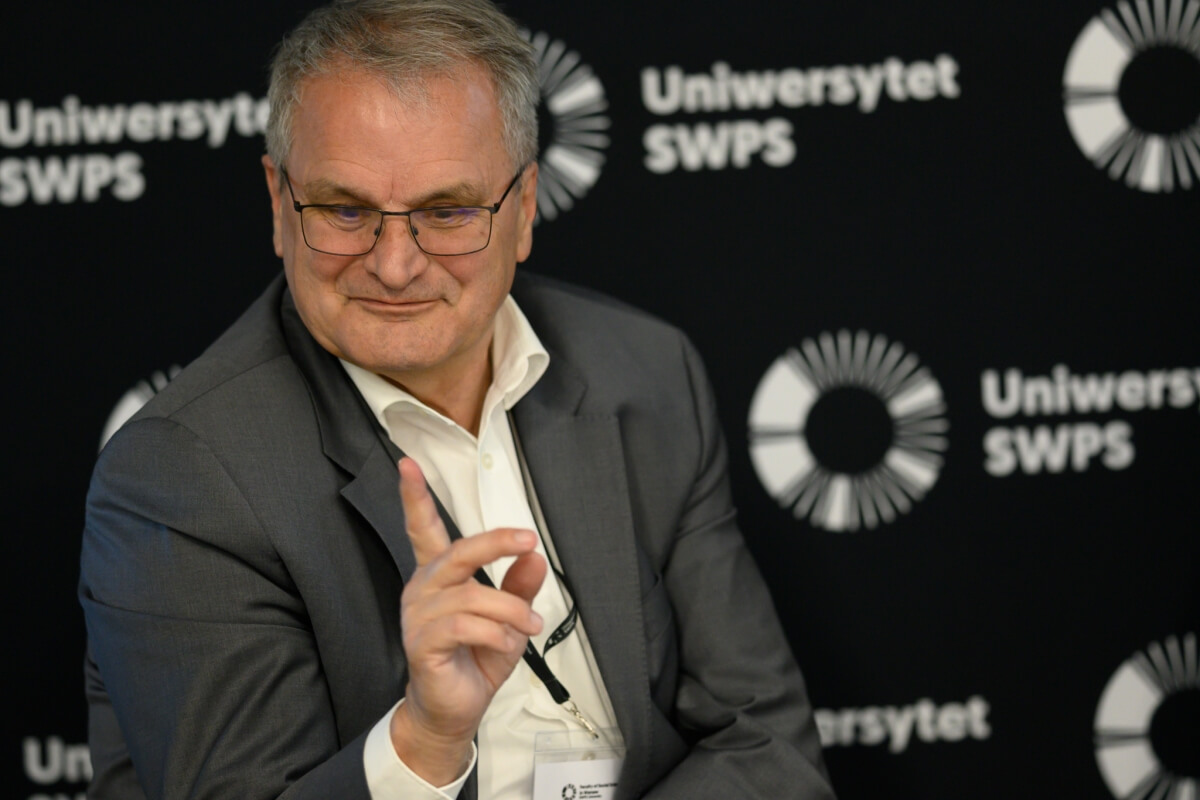 Professor Wolfgang Koenig; photo: N. Szymański
Professor Wolfgang Koenig; photo: N. Szymański
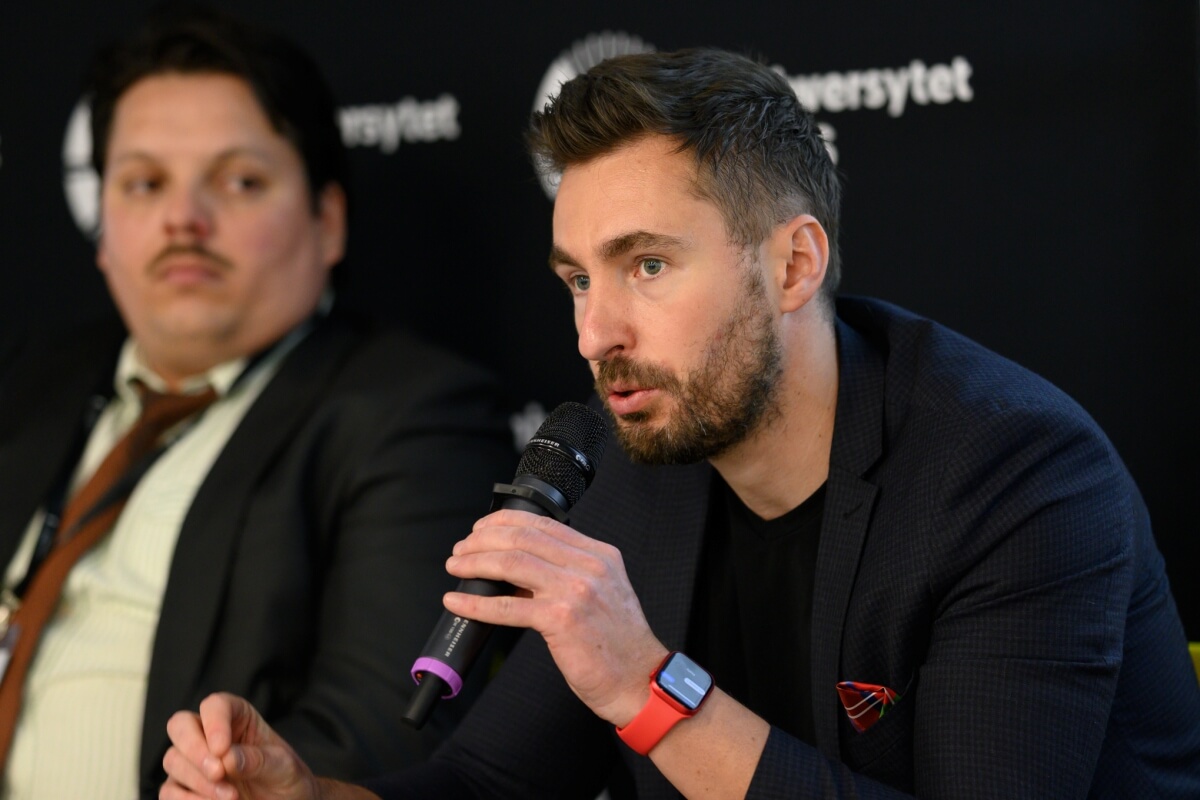 Michał Nowakowski, Ph.D. and David Campos; photo: N. Szymański
Michał Nowakowski, Ph.D. and David Campos; photo: N. Szymański
The second panel, moderated by Professor Katarzyna Januszkiewicz, Dean of the Faculty of Social Sciences, tackled the question, "Is Well-Being Measurable or Miserable in the Management Agenda?" The panelists for this session included C. David DeBenedetti, a member of the American Chamber of Commerce in Poland and lecturer at our Management and Leadership program, Jowita Radzińska, Ph.D., an expert in opinion and market research from the Faculty of Humanities in Warsaw, and Katarzyna Klimek, a businesswoman and founder of the "Moje Dobre Życie" ["My Good Life"] Foundation.
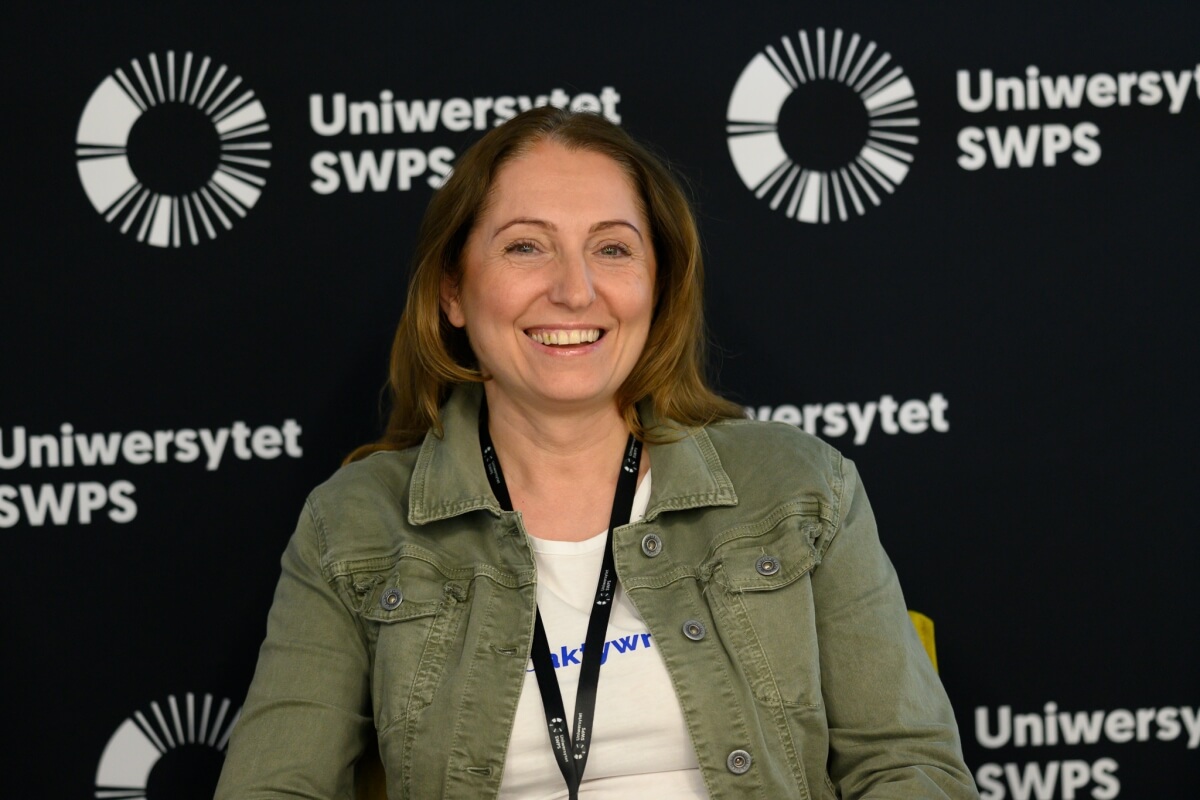 Katarzyna Klimek; photo: N. Szymański
Katarzyna Klimek; photo: N. Szymański
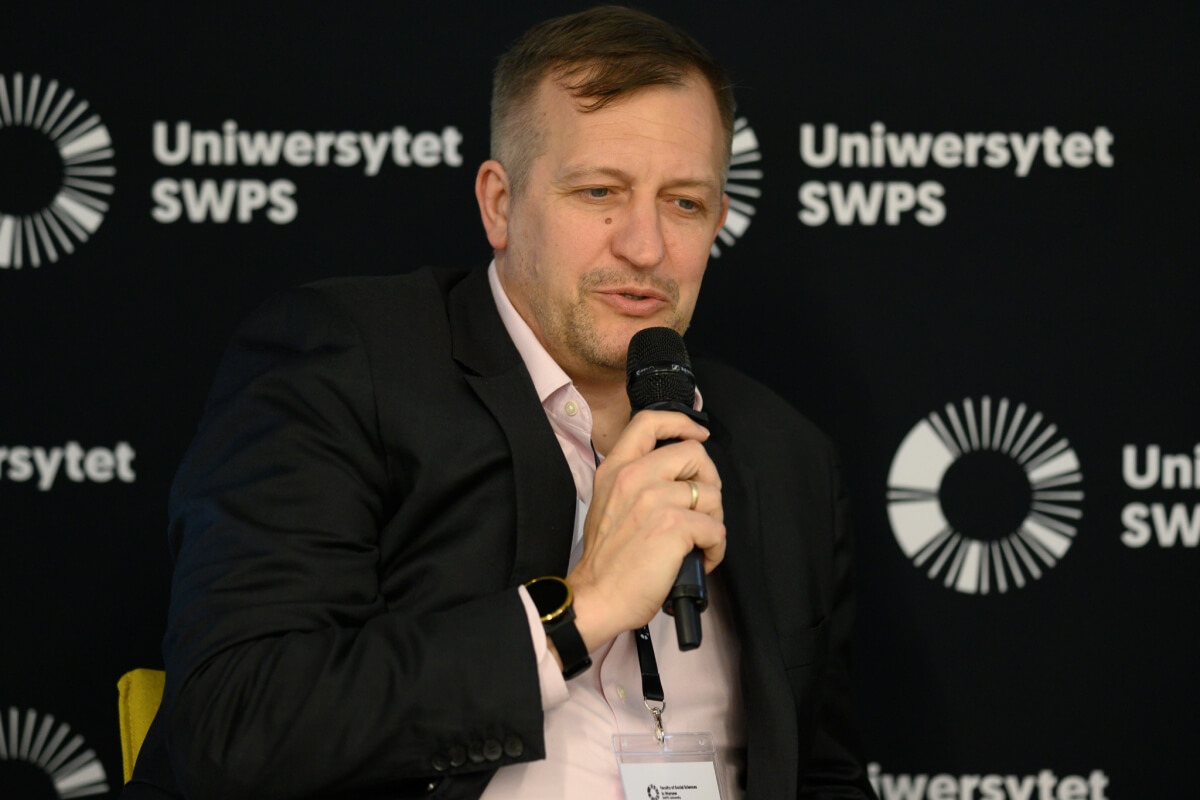 C. David DeBenedetti; photo: N. Szymański
C. David DeBenedetti; photo: N. Szymański
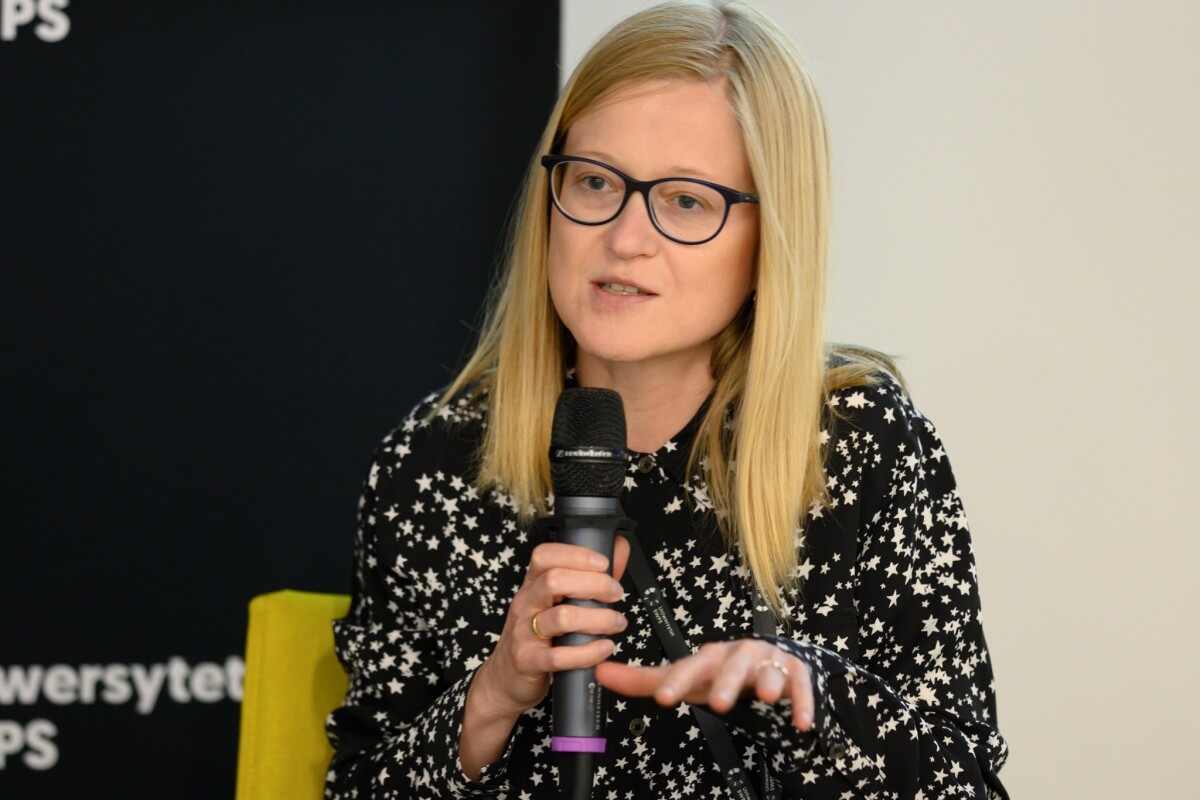 Jowita Radzińska, Ph.D.; photo: N. Szymański
Jowita Radzińska, Ph.D.; photo: N. Szymański
The debate successfully encouraged professionals from various fields to share their knowledge. The panelists unanimously agreed that a transformative journey lies ahead, where interdisciplinary discussions will play a vital role in shaping innovative strategies and initiatives that enhance well-being and empower individuals and communities. By bridging the gap between subjective and objective indicators of quality of life, we can achieve a more comprehensive and nuanced understanding of individuals' well-being. Furthermore, these insights can guide the design and implementation of evidence-based strategies and interventions improving the quality of life.
The event was part of the "Social Innovation. Challenges — Solutions — Practices" conference held at SWPS University on May 11-12, 2023, which aimed to bring together the scientific community and practitioners passionate about social innovation to create a platform for the exchange of ideas and expertise.
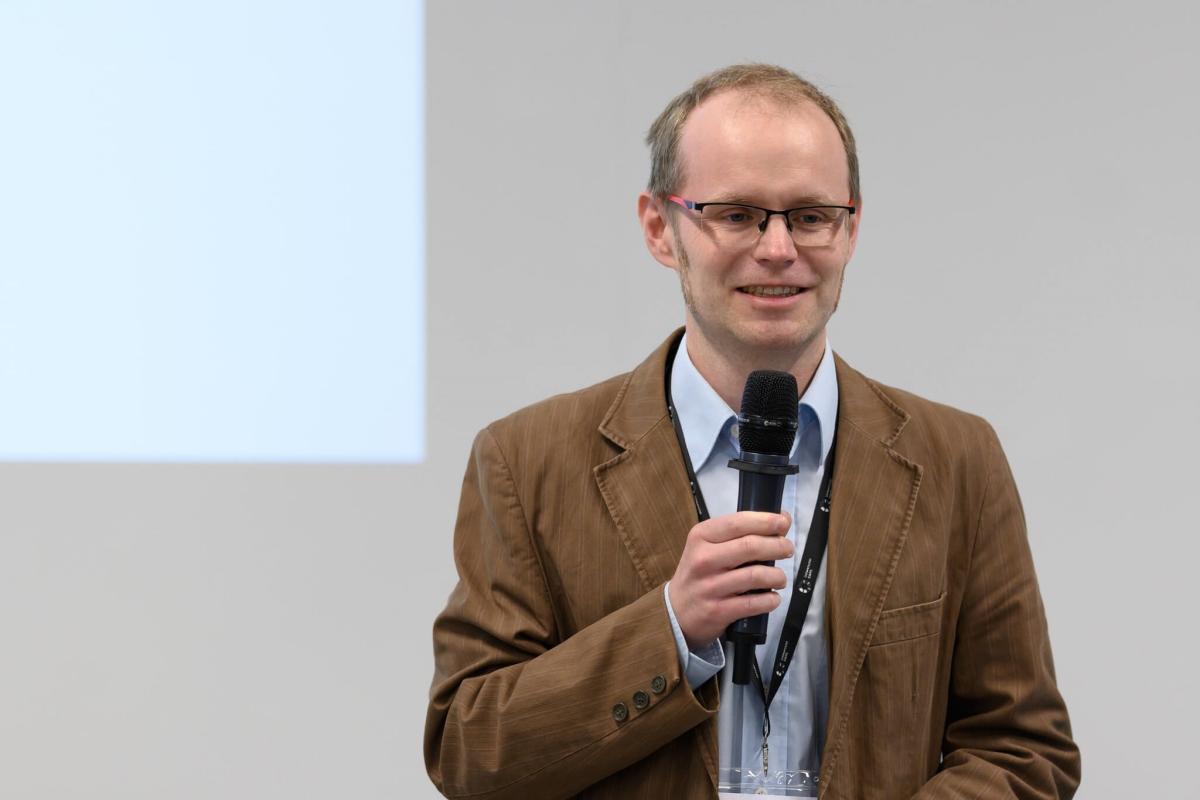 Mikołaj Rogiński, Ph.D.; photo: N. Szymański
Mikołaj Rogiński, Ph.D.; photo: N. Szymański
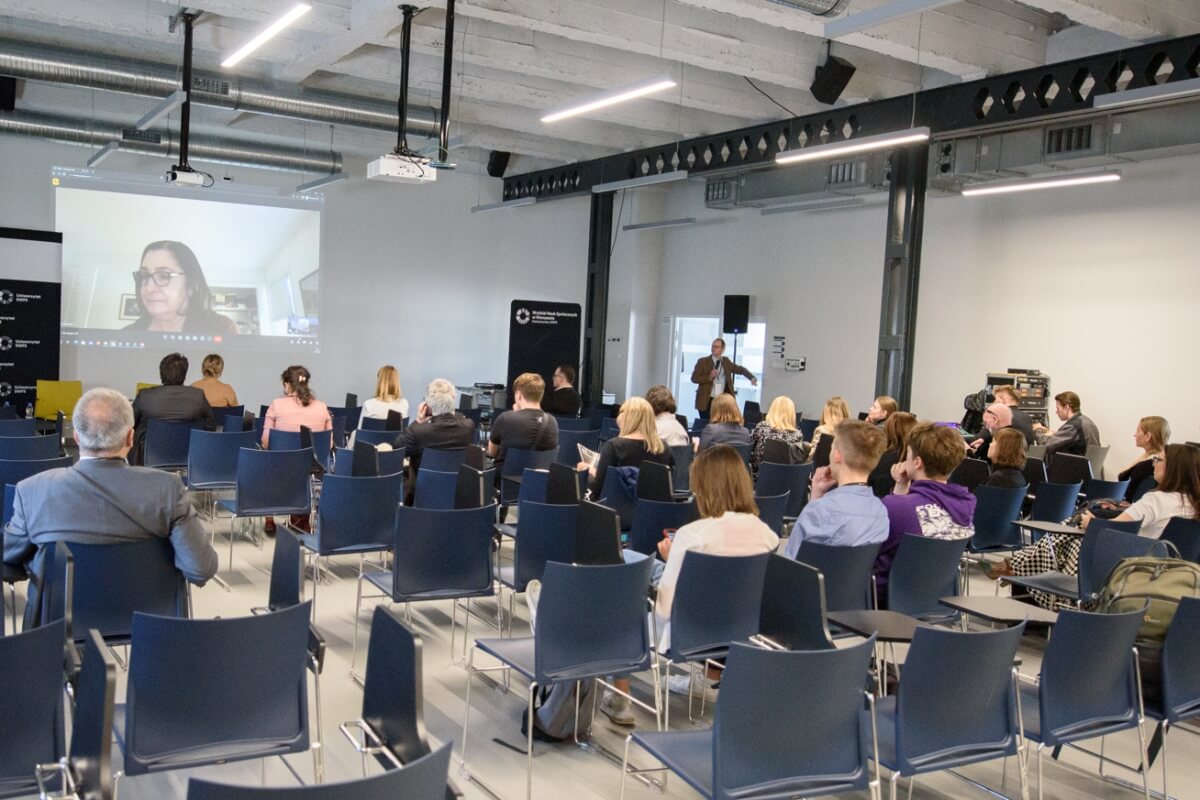 Conference audience; photo: N. Szymański
Conference audience; photo: N. Szymański
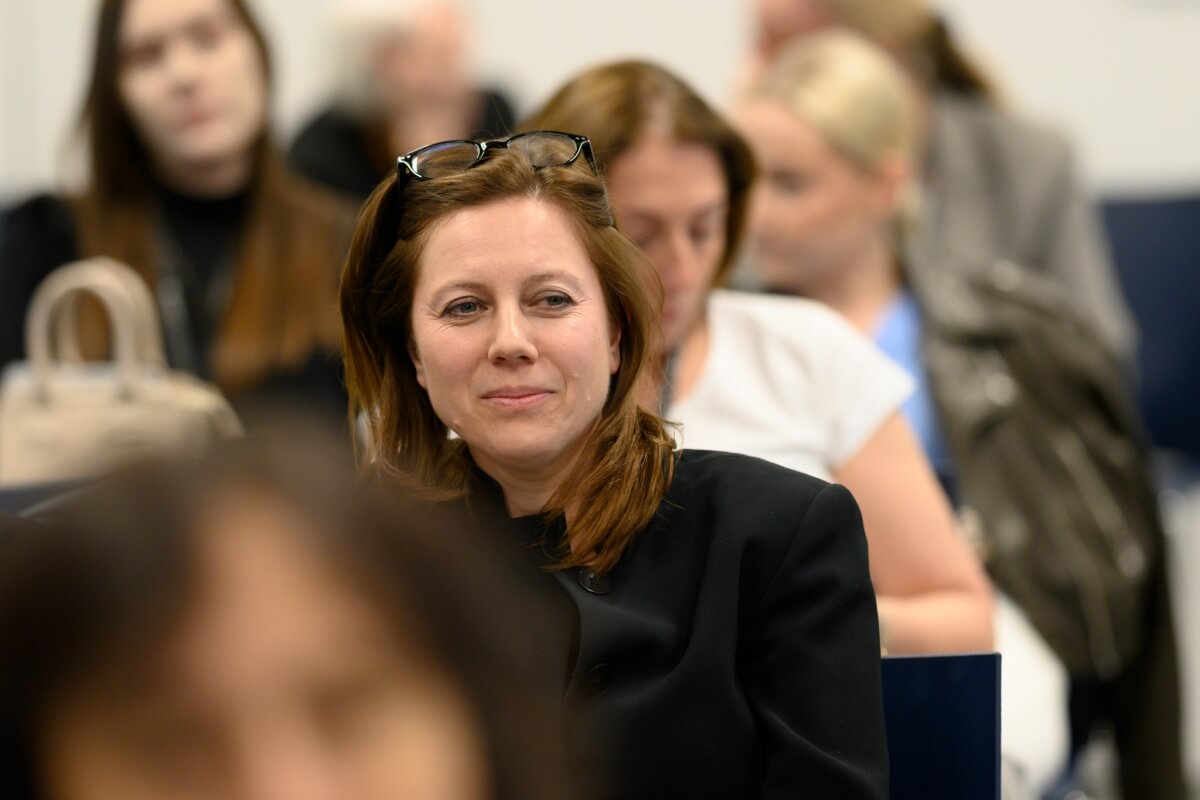 Conference audience; photo: N. Szymański
Conference audience; photo: N. Szymański